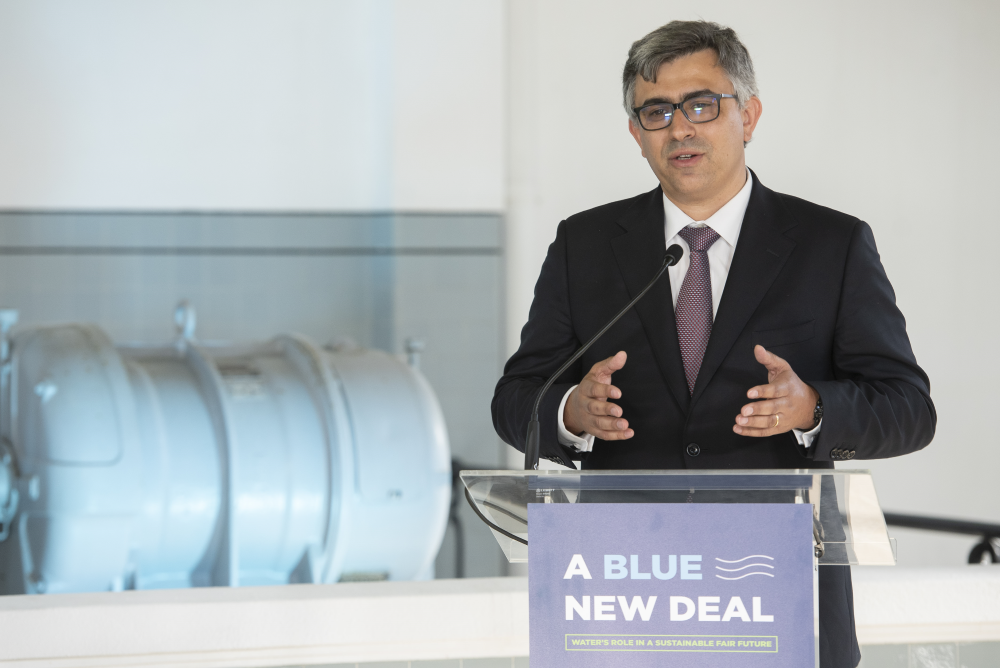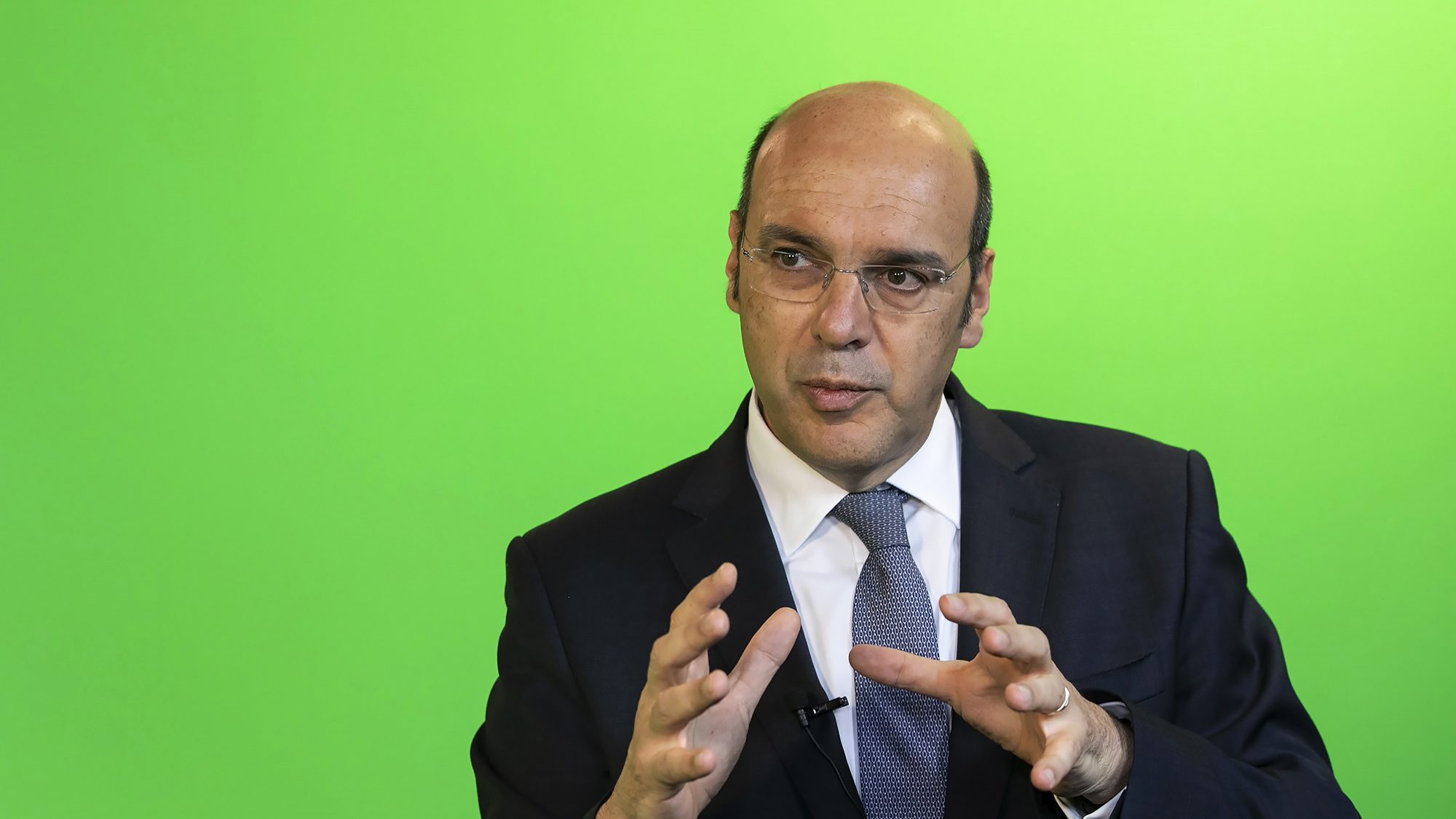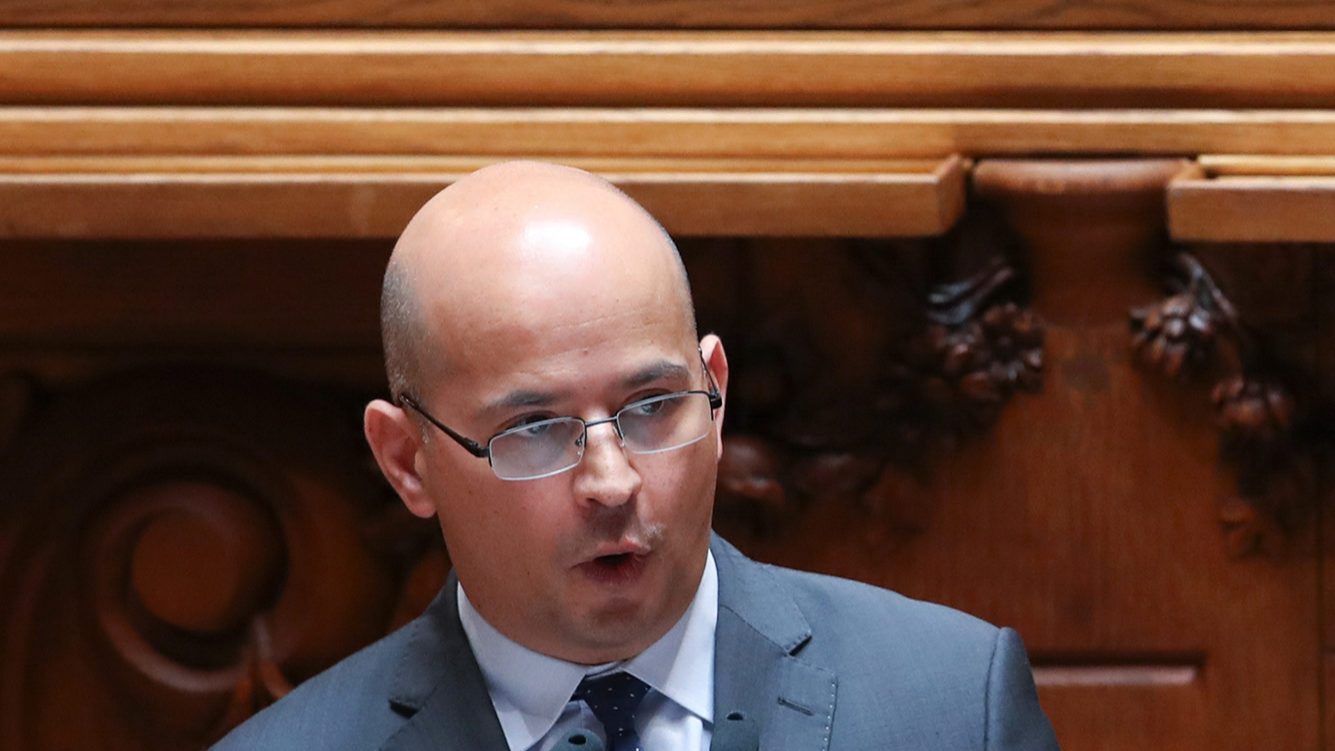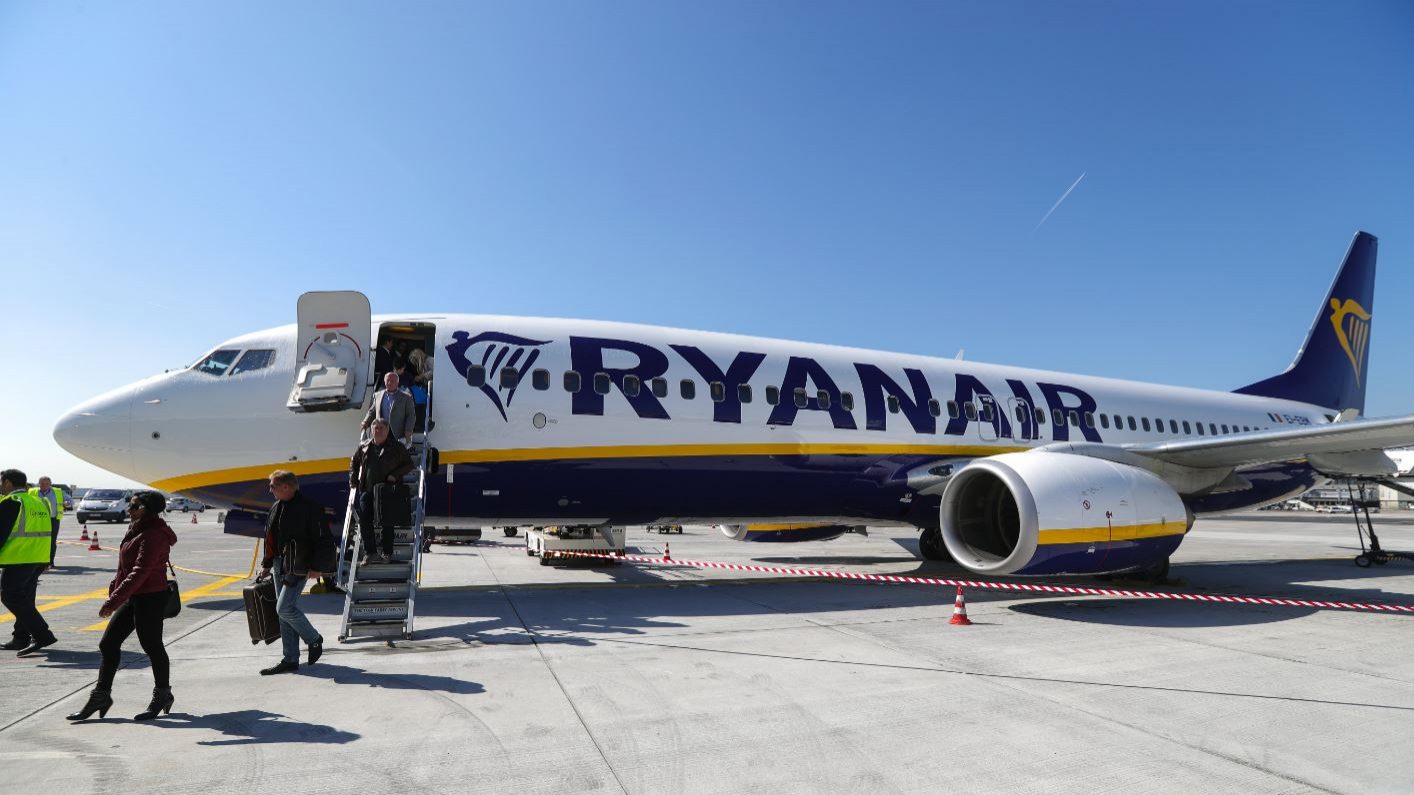A smart city is the one that “preserves its water resources”
The Águas de Gaia director, Miguel Lemos, revealed the company's latest focus: water meters with a QR code that gives an 'X-ray' of the customer and communicates in real-time with the system.
Despite recognizing that technology can contribute to a more sustainable world, Miguel Lemos, the Águas de Gaia director, recognized in a conference on the importance of water, “A Blue New Deal”, that the “intelligence” of a city should be assessed by the welfare of citizens and how it preserves water.
“What we have been investing a lot recently is in this logic of smart city connected with water. A city can only be considered intelligent if it preserves its water resources,” began by saying the Águas de Gaia director.
Therefore, digitalisation has been the company’s focus, which recently launched an innovative and sustainable project, unique among public operators in Europe’s water sector. “We seal all our water meters and, now, we also add to our seals a QR code that, when pointed by a mobile device of our inspectors, readers or any professional of Águas da Gaia, gives us the ‘X-ray’ of that customer and communicates, in real-time, with our information system,” explained Miguel Lemos.
“For any reason, if the employee who goes to the place of consumption needs information, he doesn’t need to call the headquarters or return to base, he has all the information in real-time and can even put new information in our system, either technical or commercial,” continued the administrator, who also stressed the fact that this measure allows to reduce travelling (fewer emissions) and save paper. “We substitute reams of paper for megabytes of information,” he said.
Miguel Lemos reinforced the importance of building a smart city through water, and he also spoke about rainwater. “My vision is that we, water operators, besides the responsibility of having quality water distribution systems, wastewater drainage systems, we have to look at rainwater as an autonomous system that should be a priority. This will mean, on the one hand, not sending rainwater to the WWTPs, which brings economic and environmental benefits, but, on the other hand, it will allow us to manage water lines,” he said.
Besides the QR Code project, the Águas de Gaia director highlighted three others: “There are three projects I would like to mention – the one we call KPI Daily, which is to have management indicators by day, the Water Wise System, which is a hydraulic modelling system and that, connected to our SCADA remote management system, allows us to have a dashboard where everything happens and where we can check it and take measures on it.”
Still, he pointed out that, regardless of the advances in digitalisation, the most important thing is to ensure that we move towards sustainability. “Nowadays, looking at an intelligent city, more than connected and highly technological, is looking at a sustainable city, in which citizens enjoy living,” concluded Miguel Lemos.
32 500 billion litres of water wasted every year

At the end of the event “A Blue New Deal”, Ricardo Campos, the Energy and Climate Forum president, warned about the dangers and negative consequences that are already manifesting and that may worsen if humanity continues with the same type of behaviour towards water and decarbonisation.
“We are still 85% dependent on fossil fuels for all the energy we need around the world. Despite saying we are in the decarbonisation era, we continue to spew over 110 million greenhouse gases into our atmosphere as if our skies were an open sewer for our entire industrial civilisation,” he said.
The Energy and Climate Forum president guaranteed that the only way to change this reality is to act. And, according to him, this attitude has to start now, with this generation: “The possibility of making the changes that are inevitable has fallen into the arms of our generation and this is a responsibility that we need to assume – to quickly, in a short period of time, manage to make a revolution towards a sustainable economy, a more circular economy, which may, in fact, reduce greenhouse gas emissions.”
“We have known for decades that burning coal, oil and natural gas emits greenhouse gases, carbon dioxide and causes more infrared radiation to be retained on the planet. But yet we continue this carbon-based development model that leads us today to be in a period of consequences, where we have no more time, we can no longer postpone the actions we have to take. It is important that the reason of science reaches the action of politics, companies and people, and that there may be a decisive action towards the achievement and implementation of projects,” warned Ricardo Campos.
With the same urgency of attention is the water sector that, according to the president, has to be managed in the best way so that there are no water shortages in the future: “Freshwater represents 0.5% of all water. We need to reflect a lot on how we manage water. We need to understand how much energy we spend to pump, to store, to treat and to distribute water.”
“It is not possible for us to continue to waste, halfway through this, over 50% of that water. The World Bank estimates that we are talking about close to 32 500 billion litres every year,” Ricardo Campos warned.
Still, within the same subject, Ricardo Campos spoke of the direct consequences that climate change brings on water storage: “Water warming causes increasingly stronger storms and longer and deeper drought periods. So it is important to store water, but we cannot continue to do so in dams with a high environmental impact. We have to look for solutions to overcome this challenge.”
Finally, and to promote awareness of the reality towards which humanity is heading, the Energy and Climate Forum president asked: “What priority will the use of water as a scarce resource have in the future – agriculture or the taps in our homes?”


